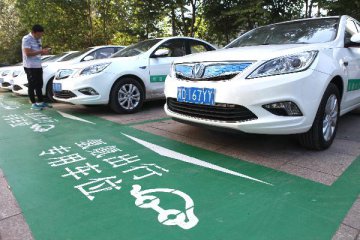
Recent official data shows 115.956 billion yuan was invested in the sharing economy last year with 76.4 billion yuan in car-sharing companies.
The popularity of the car-sharing industry entails a government’s support. The Chinese government last August released policies encouraging the development of the car-sharing sectors.
Xiaoerzuche, Bagechuxing and other car-sharing startups completed their new rounds of fundraising in the first half of last year, as reported by public media.
The investments in the sector stepped up in the second half of 2017 when Pony-Car, Gofun, TOGO, and others each had received funds exceeding 100 million yuan. The C-round of fundraising for Pony-Car even reached up to 250 million yuan.
More and more traditional car manufacturers have marched into the sector since the beginning of this year
The FAW Car Co., Ltd. has recently announced it would ink a deal with the government of Gui An and the Mobike Co., Ltd. regarding a joint venture on manufacturing shared-cars.
While the GAC Group joined hands with electronic car maker, Nio, to establish a joint company in the car-sharing sector.
Besides, BAIC Motor, SAIC Motor, and the Geely Holding Group have already started their car-sharing projects.
The potential market scale for the car-sharing industry in China would reach around 1.8 trillion yuan, as shown by researchers.
However, car-sharing companies are still faced with the same questions about the financial viability as the bike-sharing startups did.
The Beijing EZZY company dismissed its employees and announced bankruptcy last October. Moreover, the Beijing Youyou Lianchuang Car announced it would stop its operations in the same year.
Li Yu, the CEO of Youyou noted that “it was hard to see profitability in this sector as of now since the revenue cannot cover the costs.”





















Latest comments